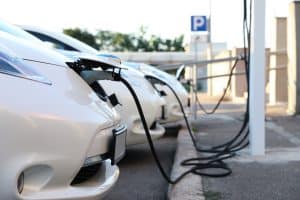The Dangers of Electric Vehicles
 Every day, millions of Americans hop into their electric cars or sport utility vehicles (SUVs) to hit the road. Electric vehicles (EVs) are advertised as superior to the average passenger vehicle in just about every way: Better for the planet. Better for your wallet. Just… better. But are they? As it turns out, electric vehicles have some potential safety issues that are of concern to anyone who drives an EV — or anyone who shares the road with an EV.
Every day, millions of Americans hop into their electric cars or sport utility vehicles (SUVs) to hit the road. Electric vehicles (EVs) are advertised as superior to the average passenger vehicle in just about every way: Better for the planet. Better for your wallet. Just… better. But are they? As it turns out, electric vehicles have some potential safety issues that are of concern to anyone who drives an EV — or anyone who shares the road with an EV.
What makes electric vehicles dangerous?
According to the United States Department of Energy Alternative Fuels Data Center, an electric vehicle is one that “can be powered by an electric motor that draws electricity from a battery and is capable of being charged from an external source.” This includes electric vehicles that rely on a battery as their only source of power, as well as hybrid electric vehicles that are powered by both a battery source and an internal combustion engine.
Ironically, the very thing that makes electric and hybrid electric vehicles so appealing — the battery — may also be the source of much of the danger for two key reasons:
The risk of fire
Most electric cars are currently powered by lithium-ion batteries. This is the same type of battery used in cell phones and laptops. Lithium-ion batteries are considered an ideal power source because they “have a high power-to-weight ratio, high energy efficiency, good high-temperature performance, long life, and low self-discharge.” However, they also carry a risk of fire. Just this past April, a Boston Globe article revealed that lithium-ion battery fires are increasing in Massachusetts, with more than 50 fires in the previous six months. While the majority of those fires involved lithium-ion batteries in scooters, e-bikes, hoverboards — as well portable devices like laptops, cell phones, and tablets — fire officials point out that any lithium-ion battery can “erupt in an explosion of toxic gasses and flames” if overcharged or overheated. That includes lithium-ion batteries in electric cars.
When an electric car does catch fire, extinguishing the flames is no small feat. According to that same Boston Globe story, after an electric car “spontaneously burst into flames” in a driveway in Wareham in August 2023, it took firefighters 11,000 gallons of water over the course of three hours to put the fire out completely. Somewhat shockingly, that is a good result. On average, extinguishing an electric vehicle fire requires 20,000 to 30,000 gallons of water – substantially more than the 750 to 1,000 gallons of water needed to put out a fire in a gas-powered car. Firefighters require special equipment and extra training to successfully battle fires caused by lithium batteries.
Car fires — whether electric or gas-powered — can cause serious, catastrophic injuries or even death. Burns, smoke inhalation, and respiratory injuries can be incredibly painful and require immediate and ongoing medical treatment and care. Burn injuries, in particular, can have lifelong consequences.
The crushing weight
It may not be the most obvious danger, but lithium-ion batteries are heavy. Significantly heavier, in fact, than the average battery in a gas-powered car. A June 2023 report by CBS News explored the safety risks associated with heavy lithium-ion batteries. The report cites testing conducted by the Insurance Institute for Highway Safety (IIHS) that demonstrated electric vehicles perform well in simulated crashes – in part because their batteries make EVs heavier, which provides better protection to occupants of the electric vehicle. However, “that extra weight – hundreds to even thousands of pounds – has traffic safety advocates concerned about the potential risk to other drivers.”
As electric vehicles grow in popularity, so does the danger
While electric vehicles still have a long way to go to catch up with the popularity of traditional gas-powered vehicles, they are making progress. According to the online publication MarketWatch Guides, electric vehicle sales in the United States increased “60% year over year from 1 million in 2022 to 1.6 million in 2023.”
Here in Massachusetts, EVs are also getting a boost from the state. In August 2022, then-Governor Baker signed legislation requiring that all new vehicles sold in the state must be electric by 2035. Additionally, the state offers rebates for residents who purchase an electric vehicle. Reports show that by March 2023, more than 27,000 state-based EV rebates had already been claimed.
What to do if you were in a car accident with an electric vehicle
If you or a loved one were injured in a car accident with an electric vehicle, you may be entitled to compensation for your injuries. The experienced car accident lawyers at Breakstone, White & Gluck can help. From our office in Boston, we represent car accident victims throughout the area, including people who were injured in accidents involving an EV. Our attorneys know how to assess an accident scene and build an airtight case, and we never back down against insurance companies and their lawyers. We fight for our clients with a proven record of getting our clients the compensation they deserve. Give us a call or complete our contact form today to schedule a free consultation with one of our Boston car accident attorneys – we stand ready to fight on your behalf.
